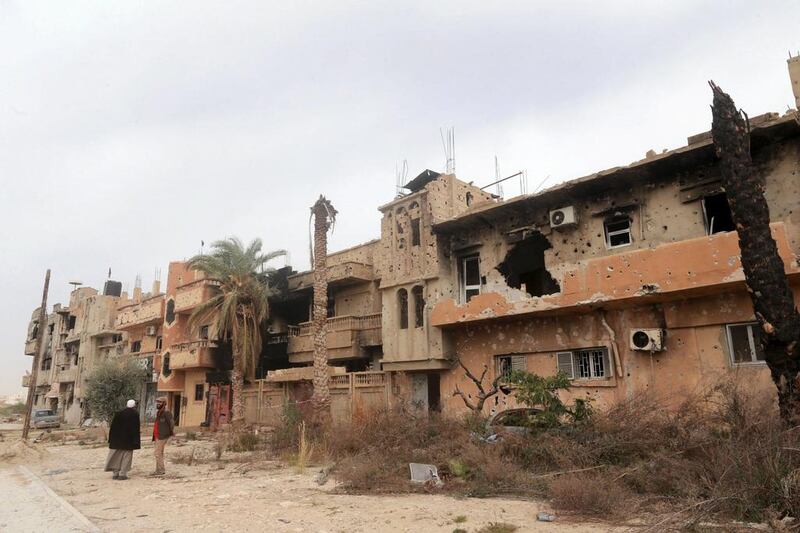On May 9, Libya’s Government of National Accord (GNA) issued a decree establishing what it called the presidential guard as a military force to be the nucleus of a national army.
The decree specifically stated that the guard would be responsible for protecting members of the GNA, its offices, sensitive government buildings and Libya’s external borders. That’s a mix of responsibilities drawing on the usual roles of the police and the army.
On May 16, at a meeting of regional and world powers in Vienna chaired by the United States and Italy, the US secretary of state John Kerry promised to push for the lifting of the arms embargo imposed on Libya five years ago.
The United Nations Security Council is expected to vote in favour of lifting the embargo once the GNA submits its military hardware requirements. Clearly the beneficiary of any arms purchases would be the newly created presidential guard, and definitely not the Libyan army which has been operating under the internationally recognised government in Tobruk.
On May 17, the guard scored its first victory against ISIL when it succeeded in pushing the extremists back into Sirte after they took nearby villages including the strategic town of Abu Grain a little over 100 kilometres west of Sirte.
Given that the guard has just been set up and is still lacking an internal structure and command centre, one wonders how it could fight and win against as formidable an enemy as ISIL.
It appears that what the politicians claim to be a new force is actually an old one being recycled with more legitimacy and legal status. In fact, the presidential guard is no more than a bunch of old militias mainly from the city-state of Misurata.
These militias rushed to ally themselves with the GNA to regain the status they lost in 2014 when they took the Libyan capital, set up a coalition of Islamists and forced the elected government to flee to Tobruk in eastern Libya. It would appear that the GNA wants to reintegrate these militias into its new military force, giving them international recognition as a legitimate army and approval to receive legal arms supplies.
As part of this process, Libyans are expected to keep quiet about the crimes these militias are believed to have committed in Tripoli in 2014 and other parts of Libya between 2011 and 2014. Observers point to the militias’ suspected role in the attack on Tripoli airport and nearby oil tanks in August 2014.
Accused of turning its back on Libya since it helped to destroy the Qaddafi regime in 2011, the West does not appear to have learnt from its mistakes. Instead, it seems to be rushing to repeat them.
The GNA has failed to put in place a rigorous vetting process to make sure this new presidential guard is not dominated by members of these militias. The West has failed to ask serious questions about this force and how it is going to be Libya's new army.
In its efforts to contain ISIL expansion in Libya, the West seems to have been in a rush to commit itself to something – anything – to show its determination to help Libya to fight terror. Supporting the GNA might have been the right political decision, but arming what it claims to be a new army could turn out to be another serious mistake with very detrimental consequences for Libya.
Libya already has a national army operating under the elected government that is recognised by the international community. That army has been battling ISIL and other terror groups in eastern Libya with some big successes – particularly in Benghazi, which has been liberated after two years of fighting.
Lt Gen Khalifa Haftar, the chief of staff of the Libyan army, is not on good terms with the GNA but this should not mean that his army is illegal or in any way comparable to other militias that have been destabalising the country for more than five years.
Libya’s only elected parliament and Gen Haftar have been calling on the UN to lift the arms embargo on the army to help in the fight against terror, but to no avail. On the other hand, the GNA still has not faced an election as required by the UN-brokered political agreement that gave birth to it in the first place.For the world powers to recognise the GNA as the government of Libya is one thing, but to accept militias with a questionable record as its army is quite another.
Mustafa Fetouri is a Libyan academic and journalist





